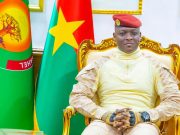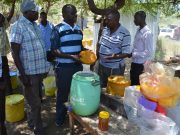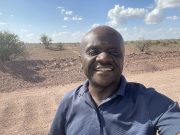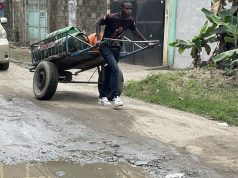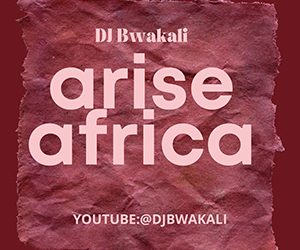I watched that Lusaka handshake and felt the weight of history. President Hakainde Hichilema stood beside Sheikh Mansour bin Jabor bin Jassim Al Thani as Al Mansour Holdings announced nineteen billion dollars for Zambia. The headline promise is 1.5 million homes. The fine print includes sweeping financial-sector changes, a national investment and development bank, and sovereign-backed investment vehicles. This is one of the largest bilateral packages in Zambia’s modern history and it comes with an architecture that will shape who writes the rules of Zambia’s next growth chapter.
I have seen this film before in our archives. In 1888, the British Crown handed the Imperial British East Africa Company a royal charter and a mission to “develop” East Africa. Treaties followed. The Mombasa–Kampala railway followed. Wealth did arrive, but so did a system that moved control away from African hands. That is why I read today’s megadeals with a historian’s caution and an economist’s appetite. Capital can accelerate growth. Capital can also concentrate leverage. Zambia’s package promises houses and jobs. It also installs new financial plumbing. The right governance will convert that plumbing into sovereignty, not silent surrender.
Qatar’s timing and method tell a larger story. In 2022, they staged a World Cup that ran like a high-precision operation. Transport links synchronized, cyber and physical security fused into one command spine, and logistics scaled to stadium-level throughput. The event displayed an organizational muscle that now stretches into statecraft. The same tournament playbook of integrated infrastructure, disciplined execution, and coordinated partners is traveling across African capitals, this time to finance banks, roads, housing, energy, and data rails.
Look south and the pattern sharpens. In Botswana, Al Mansour’s twelve-billion-dollar pledge arrived as Gaborone positioned for a historic move: taking control of De Beers as Anglo American prepares to sell. Botswana has hired Lazard and Swiss private bank CBH as advisers for a potential acquisition of all or part of De Beers. The government already owns a minority stake and supplies most of De Beers’ diamonds through Debswana. The strategic goal is simple. Botswana wants the commanding seat over the value chain. The financing to clinch that seat may include Middle Eastern capital. The choreography matters. If the transaction secures genuine control over mining, sorting, marketing, and branding, Botswana will convert a century of extraction into a new era of ownership.
This is unfolding under President Duma Boko, elected in November 2024 after voters ended six decades of single-party dominance. His mandate includes stabilizing diamond revenues, rebuilding the De Beers relationship on firmer terms, and insulating the economy from volatility. Those goals align with a bid for a controlling stake. They also demand discipline in the choice of partners and terms. The right alliance can secure leverage over pricing, marketing narratives, and downstream jobs. A careless alliance can replace one external master with another.
The diamond market itself is changing fast. Lab-grown stones are no longer a sideshow. By some estimates they have passed a quarter of global diamond jewelry sales, while in the United States they account for roughly 14 percent of jewelry sales and well over half of engagement rings. Price dynamics have flipped the old script and forced natural producers into a deeper branding fight. Any Botswana strategy that aims for resilience will build new strengths in beneficiation, retail brands, and lab-grown capabilities alongside natural production. That is how a diamond nation hedges against shocks and owns the future curve.
Zambia’s route to resilience runs through similar guardrails. The housing surge will mobilize contractors, cement, steel, and local supply chains. The new bank can channel capital toward agriculture, SMEs, and export infrastructure. Sovereign vehicles can co-finance power, water, and digital projects. All of that works only if the governance stack is clear. Zambia must ringfence decision rights, publish term sheets, disclose performance targets, and enforce local-content thresholds that create skills and firms. Transparent milestones turn fresh money into broad-based growth rather than narrow capture.
Qatar’s wider sweep shows a campaign, not isolated pledges. In Mozambique, a twenty-billion-dollar agreement arrived days after the Botswana news. The pattern pairs large checks with sector menus that include agriculture, energy, construction, and logistics. Each package meets an urgent national need. Each package also embeds a Qatari footprint in the host’s growth levers. African governments can convert that footprint into a platform for jobs, exports, and technology transfer if they negotiate joint governance, time-bound incentives, and exit triggers tied to delivery.
My own test for these megadeals is simple. Do they strengthen domestic institutions. Do they deepen human capital. Do they diversify export baskets. Zambia’s nineteen billion can pass that test with transparent procurement, local contractor quotas that build capacity rather than inflate costs, and mortgage products that keep families in homes without debt traps. Botswana’s De Beers play can pass that test with a clean acquisition structure, independent marketing arms that build Botswana brands, and a lab-grown strategy that complements natural diamonds instead of cannibalizing value.
Qatar earned global credibility by executing the world’s most complicated tournament on a compact footprint. They built transport, stadiums, security, and digital systems that still serve national goals. They are now applying the same orchestration to capital deployment across Africa. That is why African leaders must answer orchestration with strategy. We win when cash comes with capability, when foreign partners co-create value under domestic rules, and when every tranche of financing leaves an institution stronger than it found it.
I speak as a Pan-African who believes in smart partnerships. We should welcome capital that accelerates Africa’s plans. We should design those plans so that no external financier can steer the ship from the engine room. I want Zambian bricklayers and engineers to graduate from this housing wave as stronger enterprises. I want Botswana’s diamond economy to master both natural and lab-grown segments and to tell its own story to the world. Africa becomes the grandmaster when we set the board, write the rules, and execute with even more precision that Qatar showed in 2022, only this time in service of African sovereignty.


